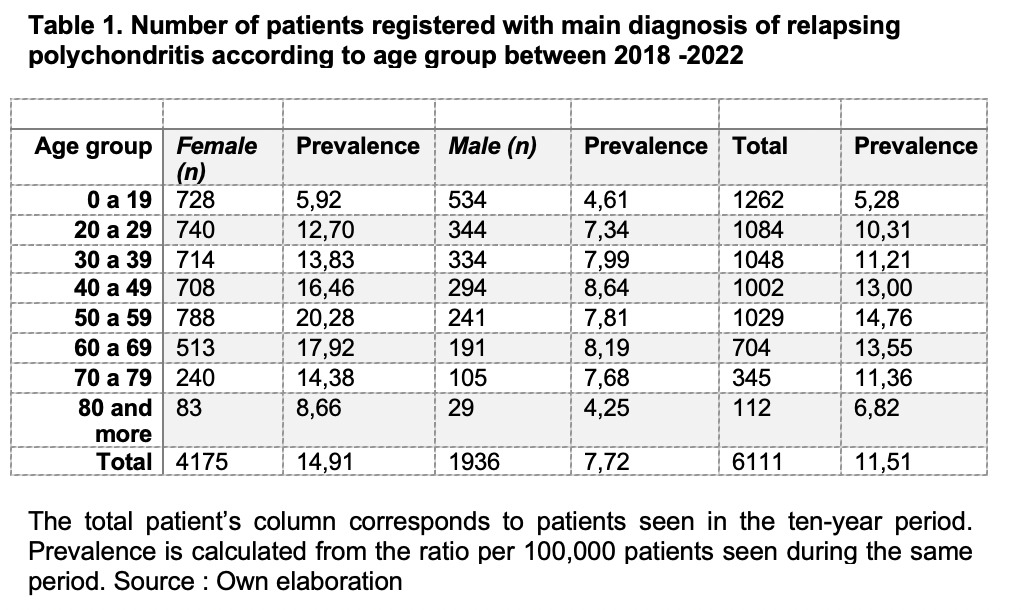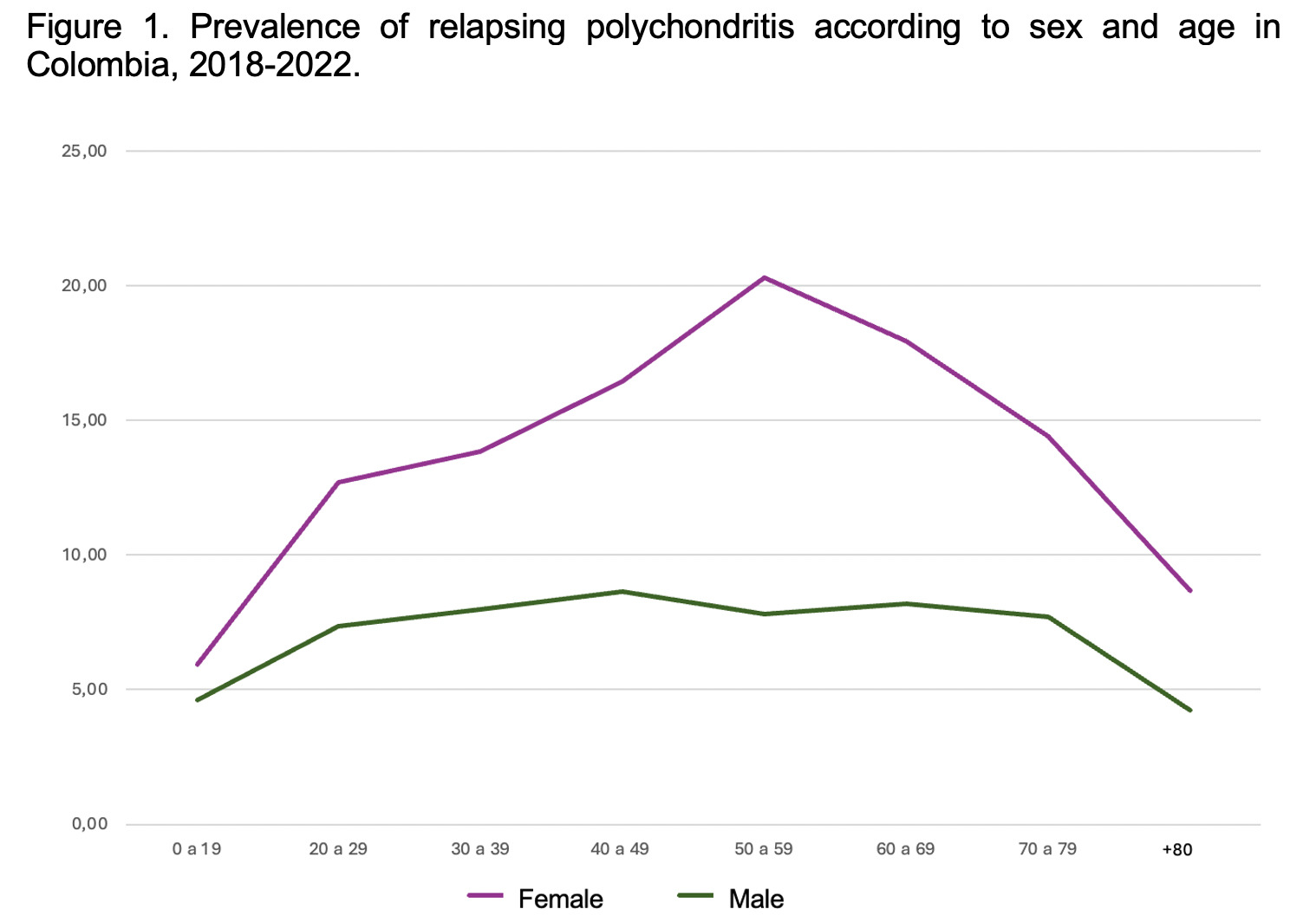Session Information
Session Type: Poster Session C
Session Time: 10:30AM-12:30PM
Background/Purpose: The implementation of the SISPRO system enables it to function as a tool capable of collecting pertinent health system data. This information is publicly accessible. A descriptive analysis was conducted, emphasizing demographic variables of the Colombian population to estimate the prevalence of Relapsing Polychondritis based on consultation records from January 2017 to December 2022.
Methods: An observational-descriptive cross-sectional study utilized the International Classification of Diseases (ICD-10) codes, specifically the diagnosis code for Relapsing Polychondritis (M941), to analyze variables including sex, age, and prevalence distribution.
Results: From 2018 to 2022, Colombia registered a total of 6,111 patients diagnosed primarily with relapsing polychondritis, revealing varying distributions by sex and age. The overall prevalence was 11.51 cases per 100,000 individuals. The highest prevalence occurred in the 50 to 59 age group, with rates of 20.28 per 100,000 for women and 7.81 per 100,000 for men. Conversely, the lowest prevalence was observed in those aged 80 years or older, with rates of 8.66 per 100,000 for women and 4.25 per 100,000 for men (Table 1). Women exhibited a higher prevalence compared to men (14.91 versus 7.72 per 100,000), with a female-to-male ratio of 1.94:1. Notably, this ratio expanded to 2.6:1 in the 50-59 age group (Figure 1).
Epidemiological analysis revealed regional disparities in relapsing polychondritis prevalence across Colombia, particularly noteworthy in the Archipelago of San Andrés, Providencia, and Santa Catalina, where a prevalence of 13.4 was reported among females compared to an absence of cases among males. Similar asymmetries were observed in Amazonas and Vaupés departments, with zero prevalence among women and 3.8 and 7.3 per 100,000 among men, respectively.
Conclusion: This observational-descriptive cross-sectional study provides insights into the epidemiology of relapsing polychondritis in Colombia, highlighting regional variations and implications for diagnosis, treatment, and public health interventions. Limitations include potential under-registration due to diagnostic constraints inherent in the ICD-10 coding system. This study represents the first of its kind to report national prevalence data on relapsing polychondritis in a Latin American country.
The total patient’s column corresponds to patients seen in the ten-year period. Prevalence is calculated from the ratio per 100,000 patients seen during the same period.
To cite this abstract in AMA style:
Bautista-Vargas M, Romero-Ocampo A, Pino Vélez J, Muñoz-Bedoya j, Rosselli D. Prevalence of Relapsing Polychondritis in Colombia: Data from the National Health Registry 2018 – 2023 [abstract]. Arthritis Rheumatol. 2024; 76 (suppl 9). https://acrabstracts.org/abstract/prevalence-of-relapsing-polychondritis-in-colombia-data-from-the-national-health-registry-2018-2023/. Accessed .« Back to ACR Convergence 2024
ACR Meeting Abstracts - https://acrabstracts.org/abstract/prevalence-of-relapsing-polychondritis-in-colombia-data-from-the-national-health-registry-2018-2023/


